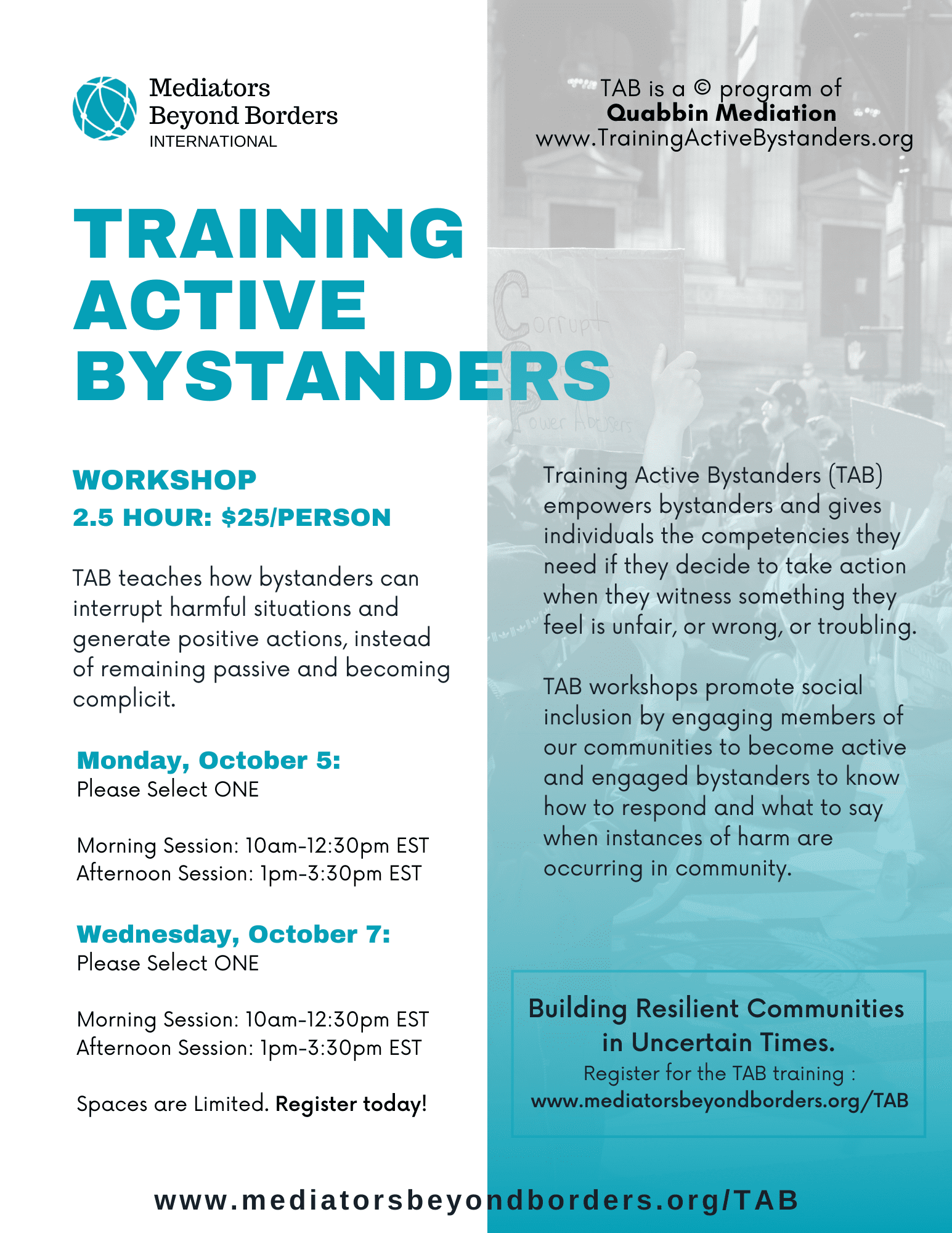Events

- This event has passed.
Training Active Bystanders, Workshop Session D
October 7, 2020 @ 1:00 pm - 3:30 pm EDT
$25
Training Active Bystanders (TAB) is a skill-building process that helps participants know when they are bystanders, to analyze situations, and evaluate consequences. TAB gives bystanders the competencies to create action plans in the moment of need or later. TAB teaches how bystanders can interrupt harmful situations and generate positive actions. Active bystandership means taking responsible action to help people in need, instead of remaining passive and becoming complicit. It does not mean aggression against the harm doer. TAB is also about responding positively to helpful behaviors, and engaging with people beyond your normal circle.
The TAB workshop is generally taught by trainers from the community where they are teaching it, using a train-the-trainers model. The lessons are interactive, using group activities, brainstorming and sharing of experiences. The training is a means of transforming the community to a norm in which harm doing is not acceptable. Bystander acts that stop harm doing to individual targets also stop the changes in a community that encourage harm to others.
Session B is October 7, 1:00 pm – 3:30 pm EST. Register for it here.
The 2.5-hour TAB workshop is adapted for training in cyberspace using the Zoom platform during which trainers and trainees are engaged with each other synchronously. The online TAB is an interactive workshop that includes activities, story sharing, small break-out group exercises, and large group discussions.
The TAB workshop covers the following:
- Defines the roles of individuals involved in a harmful situation (target, harm doer, bystander) and assists participants in discovering the positive power of bystanders;
- Discusses the universal inhibitors that lead to inaction on the part of bystanders and witnesses when harmful actions are going on and how to overcome them;
- Examines the promoters of active bystandership (moral courage, inclusive caring, responsibility for others, reciprocity and self-interest, empathy);
- Stresses safety and non-violence and helps participants, working together, to develop their own intervention techniques;
- Helps participants create action plans to break the inhibitors in the future when they encounter harm doing.
